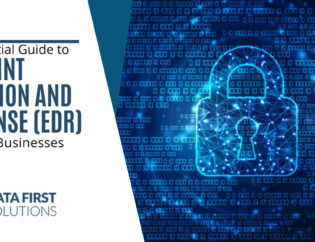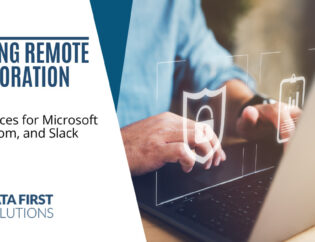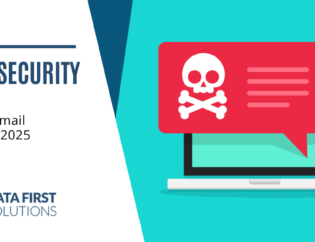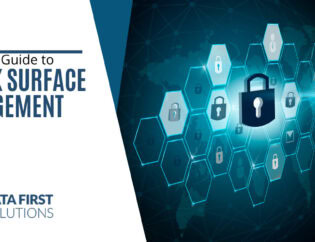
In the intricate tapestry of the digital age, where technology permeates every facet of business operations, the safeguarding of sensitive information has become paramount. However, despite heightened awareness, businesses, both large and small, often find themselves ensnared by avoidable cybersecurity pitfalls.
In this post, we will delve deep into the multifaceted landscape of cybersecurity, unraveling the most common mistakes businesses make and elucidating strategies to fortify their defenses.
Business Cybersecurity Mistakes
As businesses traverse the digital realm, the looming specter of cyber threats poses an ever-growing menace. The stakes are high, with the potential for compromised data, operational disruptions, and irreparable damage to reputation.
Lack of Employee Training
Neglecting Cybersecurity Education Programs
One of the foundational pillars of a robust cybersecurity strategy is the education and awareness of the workforce. Regrettably, many businesses falter at this crucial juncture, neglecting comprehensive cybersecurity education programs. The consequence is a workforce vulnerable to the intricacies of phishing scams, social engineering tactics, and other insidious cyber threats.
To rectify this, businesses must invest in ongoing and targeted training sessions. These sessions should equip employees with the knowledge and skills necessary to identify and thwart potential threats. Topics should span the gamut, from password best practices to recognizing and reporting suspicious emails.
Failure to Foster a Cybersecurity Culture
A sub-element of employee training is the establishment of a cybersecurity culture within the organization. It’s not merely about imparting knowledge but instilling a mindset that views cybersecurity as a collective responsibility.
Regular reminders, simulated phishing exercises, and open channels for reporting security concerns contribute to creating a resilient cybersecurity culture.
Weak Password Policies
Reliance on Weak and Common Passwords
Passwords, often the first line of defense, become a glaring vulnerability when businesses rely on weak and common combinations. The use of easily guessable passwords or those recycled across accounts presents an open invitation to cybercriminals practicing brute force attacks.
To bolster this defense, organizations should enforce stringent password policies. This includes mandating a combination of uppercase and lowercase letters, numbers, and special characters. Furthermore, the regular updating of passwords and the implementation of multi-factor authentication add additional layers of protection.
Inadequate Management of Privileged Accounts
Another facet of password-related vulnerabilities is the inadequate management of privileged accounts. Granting unnecessary access privileges or failing to revoke access promptly can lead to unauthorized access and compromise sensitive information.
To mitigate this risk, businesses should conduct regular audits of user privileges, ensuring that employees only have access to the resources necessary for their roles. Automated tools can assist in tracking and managing these privileged accounts effectively.
Inadequate Data Encryption
Overlooking the Importance of Encryption
In the digital age, data is akin to currency, and its protection is non-negotiable. Yet, businesses often overlook the importance of robust data encryption. Failure to encrypt sensitive information leaves it vulnerable to interception, a risk that can have severe repercussions for confidentiality.
To address this concern, organizations must prioritize end-to-end encryption for communication channels and adopt encrypted storage solutions. This ensures that even if unauthorized access occurs, the intercepted data remains indecipherable without the corresponding decryption keys.
Neglecting Mobile Device Security
In an era dominated by mobile devices, their security often becomes an afterthought. Neglecting to secure mobile devices used for business purposes creates an additional attack vector for cybercriminals.
To shore up this vulnerability, businesses should implement robust mobile device management policies. This includes encrypting data on mobile devices, enforcing secure authentication methods, and enabling remote wipe capabilities in case of device loss or theft.
Ignoring Software Updates and Patch Management
Delaying or Neglecting Software Updates
The software that powers business operations is a prime target for cyber threats. Yet, businesses frequently falter by delaying or neglecting crucial software updates. Cybercriminals are adept at exploiting vulnerabilities in outdated software to gain unauthorized access.
To rectify this, businesses should establish a proactive patch management process. This involves regularly updating operating systems, applications, and security software. Automated tools can assist in streamlining this process, ensuring that systems are fortified against known vulnerabilities.
Lack of Vulnerability Scanning and Testing
Simply updating software is not enough; businesses must go a step further by conducting regular vulnerability scanning and testing. This proactive approach helps identify potential weaknesses before they can be exploited by malicious actors.
Integrating vulnerability scanning into the cybersecurity strategy allows businesses to stay one step ahead of potential threats. Regular penetration testing, conducted by ethical hackers, can simulate real-world attack scenarios, providing insights into the resilience of the security infrastructure.
Insufficient Backup and Recovery Plans
Underestimating the Importance of Backups
Data is the lifeblood of modern business, and its loss can be catastrophic. Unfortunately, many businesses underestimate the importance of robust backup and recovery plans. Ransomware attacks and unexpected system failures can lead to data loss, jeopardizing business continuity.
To address this, organizations must implement comprehensive backup strategies. Regularly backing up critical data to secure and offsite locations ensures that in the event of a cyber incident, data can be restored promptly. It’s equally crucial to regularly test these backups to guarantee their effectiveness.
Neglecting Incident Response Planning
A backup is only as good as the plan in place to respond to a cybersecurity incident. Businesses often neglect to formulate a comprehensive incident response plan, leaving them scrambling when an attack occurs.
To rectify this oversight, organizations should develop and regularly update an incident response plan. This plan should outline the steps to be taken in the event of a cyber incident, including communication strategies, containment procedures, and recovery processes. Regular drills and simulations can help ensure that the response team is well-prepared for various scenarios.
Protect Your Organization
The digital landscape is fraught with perils, and businesses must navigate it with a keen awareness of potential cybersecurity pitfalls. By addressing common mistakes such as neglecting employee training, enforcing weak password policies, overlooking data encryption, ignoring software updates, and underestimating the importance of backups, organizations can significantly enhance their cybersecurity posture.
For businesses seeking personalized cybersecurity solutions tailored to their unique needs, we invite you to contact Data First Solutions. Our commitment to securing your digital assets, coupled with our expertise in the ever-evolving cybersecurity landscape, sets us apart as a trusted partner in safeguarding your business against cyber threats.









